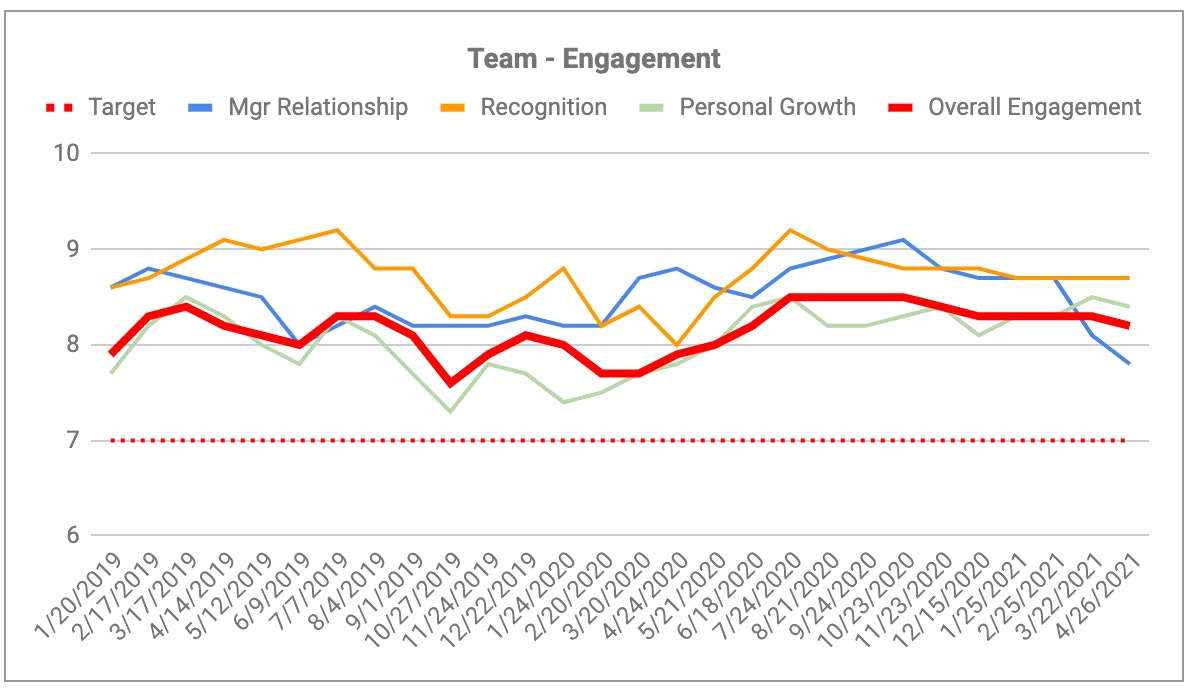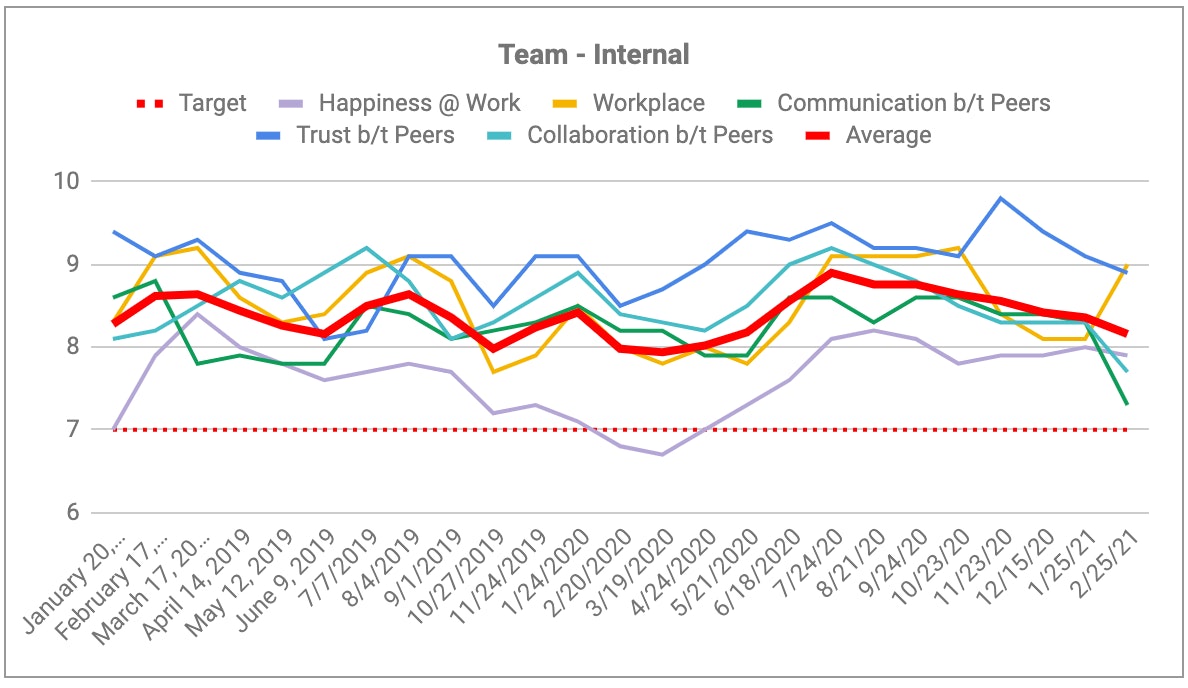The Importance of Tracking Team Health
No team is too small to track its health. With technology today, there are even more ways to do this and to get a more robust picture of a team. What used to be anonymous comment boxes or a simple rated net promoter score (NPS) can now factor multiple data points to assess health. In fact, the best tools will integrate with a teams natural flows (perhaps slack or asana) and will even consider aspects of a team member’s satisfaction that are not even directly related to the role (ie mental and physical health, etc).
![]()
There are so many great tools out there but one I have used for years now (and even recommended to companies I am on the board of) is Officevibe. It has 10 key metric factors and is compiled from a simple slack survey that is 5 questions each week (it also has other integrations for ease of use but we are a slack company). There is even an integrated digital comment box that allows team members to anonymously share things with management. Over the years too, I have been able to deepen our usage of this in some pretty interesting ways…because again, Officevibe is still only a tool and needs to be thoughtfully integrated into everyday practice.

Here are some of the things I have learned over the years…
Transparency.
Again, this is our score…not just mine. This is a reflection of all of us, not an indictment of me as the senior leader. Now…it is a great litmus for how I am doing as the senior leader, but we felt it important to say early and often that team health is something we all need to own. Therefore, we report the scores every month during our extended team meeting and talk about ways to improve. I even have a manager that takes the scores into their 1:1 meetings to discuss and uses it as talking points for how to improve and even solicit ideas from their subordinates.
![]()
Low scores are always welcomed but context when given is even better.
What I mean is that we say literally every meeting, please rate things how you see them but if you put lower than a 6 (on a scale of 1-10) please drop a note as to why. They comments are anonymous but are super helpful in understanding the why behind any score. Now, that still didn’t result in every low score receiving a comment, but it was stressed enough that we would receive really helpful feedback related to the scores and we would always discuss them in our leadership meetings.
![]()
Be careful of how you respond to trends.
One thing we had to do was export the scores into a google sheet in order to track YoY trends. Often if a score was dropping, my head of HR would get concerned and it wasn’t until we overlaid each year on a graph could we better understand the data. Sometimes a dropping score was simply the seasonality of work. We found that April and October were always some of our craziest months and as a result, the scores would always trend down in those periods (same with things would trend up around corporate rest). What we then started doing was evaluating more the rate of decline to see if perhaps there was something outside the ordinary.
![]()
You will not always get great scores.
At the end of the day, these are indicators. They help spotlight potential friction points and problems within a team. Be careful to lead-based solely off what you see. Making hard decisions is part of leadership. Changing direction always will result in confusion and friction…and inevitably, in lower scores. New team members take time to feel comfortable and new leadership will always take time to learn and trust. Each of these things will impact your score. If you are one that cannot handle a lower than normal score or a score that might dip below your target, then leading teams may not be something you should do. Sitting with the data and asking questions about the data and understanding the data are key to your success and ability to navigate change and lead teams over time.


Again…one of my personal core principles is “expect what you inspect”…as a leader, if you truly care about people and culture, then using tools to diagnose team health are vital.
This article was originally published on Bryce Butler’s Substack, More Than Profit. Subscribe to be the first to access new articles.



